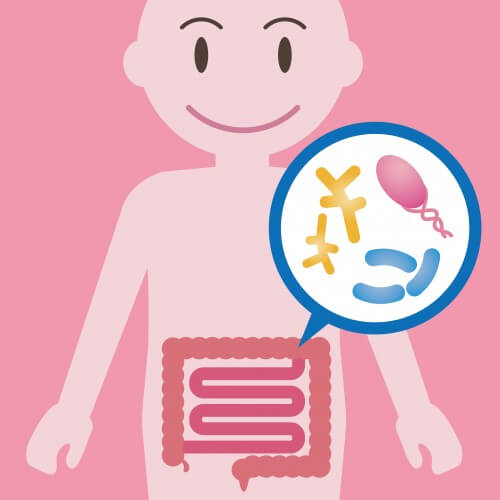About 40 trillion bacteria live in the body of a normal person, along with about 30 trillion human cells; That is, the numerical ratio between bacteria and human cells in the body of a normal person is closer to being equal - a ratio of 1:1.

How many bacteria are permanently "hosted" in the body of an ordinary person? According to the common estimate in recent decades in the world of science, the number of bacteria is 10 times greater than the number of human cells. That is, human cells are in a notable minority in relation to the number of bacteria in that person's body. In a calculation made recently by the scientists of the institute, a surprising result was discovered: in the body of an ordinary person live about 40 trillion bacteria, along with about 30 trillion human cells; That is, the numerical ratio between bacteria and human cells in the body of a normal person is closer to being equal - a ratio of 1:1.
The bacteria living in the human body are an important and central factor in various processes that take place in our body, in both healthy and sick states. The unique composition of the population of bacteria in each person (Microbiome) is one of the reasons for individual differences in everything mentioned in obesity, in response to medications and more, and some see it as a kind of "second genome" that must be taken into account when prescribing different treatment methods.
The growing importance of the body's bacteria in contemporary scientific research in various fields led Prof. Ron Milo, Dr. Shay Fox, and research student Ron Sander, all from the Weizmann Institute of Science, to examine the question: Is the relationship between human cells and the bacteria in the body of an ordinary person, Indeed, ten bacteria per human cell, as estimated so far?
This research effort is part of the work on a book called Cell Biology by the Numbers that Prof. Milo recently published together with Prof. Rob Phillips from the California Institute of Technology, Caltech, which deals with calculations, estimates, and numerical intuition at the level of the living cell.
The original concept, which held that the number of bacterial cells in one person's body exceeds ten times the number of human cells, stemmed, among other things, from the estimate that a bacterium is 1,000 times smaller in volume compared to the size of a human cell. But not all human cells are similar in size, and there are also size differences between bacteria. For example, red blood cells are only 100 times larger than the "standard" laboratory bacteria, while the bacteria in the gut are on average four times larger than the "standard" laboratory bacteria. The scientists of the institute will calculate in their calculations the amounts of different human cells, and their size ratio compared to the size of the bacteria in the body. In addition, they will curse the number of bacteria "hosted" in different organs of the body; For example, very many bacteria "live" in the large intestine, but in most other organs, their number is much more modest.
"The importance of bacteria living in our bodies is very great," says Prof. Milo. "The roles they play shed new light on various processes, and research in this field may lead to important scientific and medical insights. Life is a dynamic process, and it is difficult to give absolute numbers in this area, which often leads to a qualitative reference only. But informed numerical estimates of orders of magnitude are a powerful tool, which are used more and more in the life sciences and medicine. For those who are experts in using them, they become a kind of "sixth sense" that opens a window to new insights and fascinating questions.'

2 תגובות
Answer to Aria:
Indeed, a lot of good bacteria in our body also die when taking antibiotics. For example, a person can take an antibiotic whose role is to prevent gum inflammation and as a result of taking it, huge amounts of colon bacteria will die, which will cause him diarrhea. To balance the picture, he will have to change this antibiotic to a friendlier one and maybe also take probiotics to speed up the return of the friendly bacteria in his colon.
How do the bacteria in our body survive when we take antibiotics for an infectious disease caused by pathogenic bacteria?